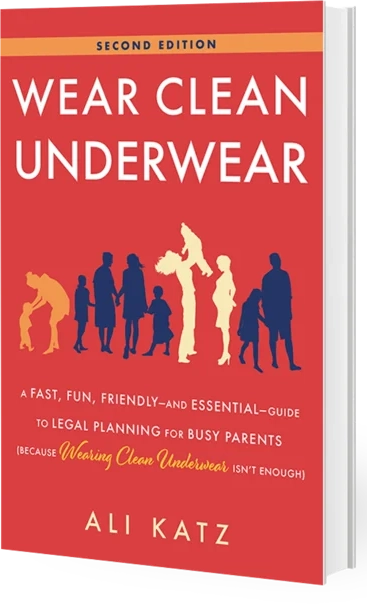What if Mommy and Daddy Don’t Come Home
1. Uncertain Guardianship:
One of the most critical aspects of estate planning for parents is designating a guardian for their minor children. If you don’t specify your preferences in a legally binding document, such as your will, the court will be left to decide who will assume responsibility for your children. This decision may not align with your wishes or what’s in the best interest of your children.
2. Potential Family Disputes:
Without clear instructions in your estate plan, disagreements may arise among family members about who should care for your children. This can lead to legal battles and strained relationships, causing additional emotional distress for your children during an already challenging time.
3. Financial Insecurity:
Estate planning involves more than just determining who will care for your children; it also addresses the financial aspects of their well-being. If you don’t have a plan, the court may appoint someone to manage the financial affairs of your children, and the distribution of assets may not align with your intentions.
4. Probate Delays:
Without a will or trust in place, your estate will likely go through probate, a legal process that can be time-consuming and costly. During this time, access to your assets may be restricted, causing financial difficulties for your children and their caregivers.
5. Lack of Special Needs Planning:
If you have a child with special needs, proper estate planning is crucial to ensure their ongoing care and financial support. Without a plan, your child with special needs may lose access to government benefits or face financial instability.
6. No Contingency Plans for Incapacity:
Estate planning is not only about preparing for death but also for potential periods of incapacity. Without documents like a durable power of attorney and healthcare proxy, there may be confusion and delays in making important financial and medical decisions on behalf of your children.
7. No Educational or Religious Guidance:
If imparting specific educational or religious values is important to you, these preferences should be outlined in your estate plan. Without clear instructions, decisions about your children’s upbringing may be made without regard to your beliefs and values.
8. Potential Loss of Assets:
Without a will or trust, your assets may be distributed according to state intestacy laws, which may not align with your intentions. This could result in your children receiving their inheritance before they are mature enough to handle it, potentially leading to financial mismanagement.
9. No Plan for Blended Families:
If you have a blended family, where there are children from a previous marriage or relationship, the absence of a clear estate plan can lead to disputes between your current spouse and children from a previous relationship, potentially jeopardizing family harmony.
10. Missed Opportunities for Tax Planning:
Effective estate planning can help minimize tax liabilities, ensuring that more of your assets are passed on to your children. Without proper planning, your estate may incur unnecessary taxes, reducing the financial legacy you intended for your children.
11. Emotional Impact on Children:
The lack of a well-thought-out estate plan can have emotional consequences for your children. Uncertainty about their future, financial instability, and potential conflicts among family members can contribute to stress and anxiety.
12. Loss of Personal Items and Family Heirlooms:
Personal belongings and family heirlooms may hold sentimental value for your children. Without specific instructions in your estate plan, these items may be distributed or disposed of without consideration for their emotional significance.





